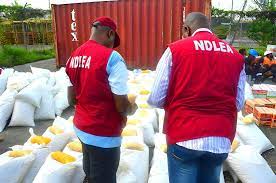The security situation in the Niger Delta has rapidly deteriorated due to a series of attacks targeting oil-industry sites. Little is known of the group responsible for most of the assaults, which have become a threat to the oil industry’s security. The revival of a Niger Delta insurgency could prove more detrimental to Nigeria’s economy than the ongoing Boko Haram militant campaign, which is mostly limited to the northeast.
Most of the attacks have been claimed by the self-proclaimed “Niger Delta Avengers,” or NDA, an organisation unheard of before February. The size and membership of the group, which communicates through social media, as well as its own website, remain unclear. “The Avengers” have distanced themselves from the Movement for the Emancipation of the Niger Delta, or MEND, and other groups, which they accuse of pocketing government stipends.
So far, the Niger Delta Avengers (NDA) hasn’t kidnapped foreign oil-industry operatives, but this practice may change, especially since, on May 12, the Avengers released a statement announcing a two-week ultimatum for all oil-industry firms to leave Nigeria. The demand doesn’t appear to have included a ceasefire, as attacks have continued. It remains unclear how closely the Avengers would mimic MEND’s tactics, given their condemnation of the group. Unlike other groups, the Avengers have apparently not been involved in the kidnapping of oil-industry expatriates. For the moment, the group seems intent on attacking infrastructure and reducing output; but it isn’t averse to violence, as evidenced by attacks against security forces and government officials.
In any case, even if the NDA continues not to engage in kidnappings, the revival of militancy in the Niger Delta could well lead to a heightened threat of abduction for foreigners operating there. On June 22, unidentified gunmen abducted three Australians, a New Zealander, a South African and two locals in Cross River State’s Akpabuyo district. No group has yet claimed responsibility for the abduction.
The end of the 2009 amnesty program, which until now has provided former Niger Delta insurgents with monthly incomes, is the most obvious spark for the insurgency’s revival. Nigeria’s 2016 budget reduced the program’s funding by 70%. The budget slash follows President Muhammadu Buhari’s termination of the lucrative security contracts that former President Goodluck Jonathan had awarded the former militants. Mr. Buhari’s administration has also cracked down on oil theft, which benefits many former militants in the region, as part of the president’s anti-corruption drive. As a result, former militants contend that the government’s policies ultimately work against the Delta’s economic interests.
Buhari has limited options to restore security in the Delta. The government cannot afford to resume amnesty payments, which would, in any case, be at odds with the president’s anti-corruption platform. Instead, Mr. Buhari has signaled that he wouldn’t hesitate to use the military to “crush” the new assailants. Oil industry figures, however, are concerned about a possible military crackdown, which may alienate the Ijaw people, the Niger Delta’s indigenous inhabitants. Also, a military option would come at a financial cost, likely surpassing that of the amnesty program.
Lastly, the Nigerian military is already engaged against Boko Haram militants in the northeast and, increasingly, armed Fulani cattle herders in the Middle Belt. The opening of a third front in the Niger Delta could well overstretch resources.
The sharp increase in instability and violence observed since February is likely to be only the beginning of a trend, and Mr. Buhari’s limited options to handle this emerging threat increase the opportunity for military escalation. The sophistication of the NDA suggests that the group’s potential as a disruptor should be taken seriously. Theft, vandalism, armed attacks, abductions, piracy and civil unrest are possible threats facing multinationals in coming months.
Culled from www.nasdaq.com



